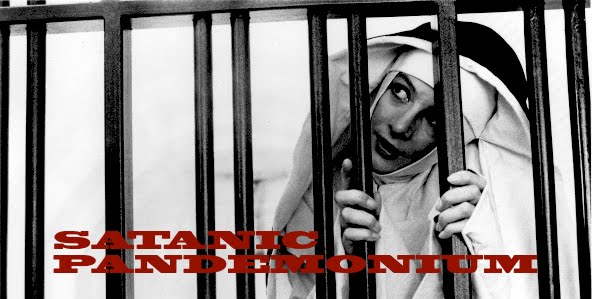Rainer Werner Fassbinder, 1978
Starring: Dirk Bogarde, Andréa Ferréol, Klaus Löwitsch, Volker Spengler
Hermann Hermann, a successful Russian businessman and chocolate factory owner living in Germany, becomes increasingly paranoid during Nazi Party’s rise to power. He is convinced that he won’t be able to leave the country and, after seeing a film, decides to construct the perfect crime, where he will find a physical double and kill that man, so that he can escape to a blue collar life of freedom and anonymity in Switzerland. He finds a homeless man named Felix that he believes could be his twin — although Hermann is obviously mistaken — and sets about his plan while on a descent into madness.
Fassbinder’s only English-language film — and the only one with a truly international star — is an oddly neglected work. It boasts plenty of name-dropping power, including the appearance of lead Dirk Bogarde (from The Night Porter and one of Fassbinder’s favorite films, The Damned), as well as scriptwriter Tom Stoppard and source material from Nabokov. Despair also has one of Fassbinder’s largest budgets; his films typically cost around $500,000, but this was around $1 million. The sets certainly show it. Hermann celebrates bourgeois culture almost obsessively, and his elaborate home is like a museum to it. Filled with sculptures, glass, mirrors, refractions, and reflections, Despair is one of Fassbinder’s most extravagantly shot films and he and DP Michael Ballhaus transform the beautiful home into an ornate prison where comfort and claustrophobia go hand in hand.
While Despair examines the horror of the rise of Nazism, this black comedy is more about one of Fassbinder’s beloved themes: the fact that bourgeois society inherently leads to personal oppression almost as much as fascist governments. Hermann himself explains the lack of difference between black shirts, brown shirts, and white and red armies. There is also the collusion of the SA and the chocolate factory — their uniforms are the same color as the candy bars — and the relationship between business and power, money and violence. There is a telling scene where the word “merger” is confused with the “murder.” Hermann optimistically — and ignorantly, Fassbinder points out — thinks that he will find freedom by abandoning his wealthy lifestyle in favor of a simpler, blue collar model, but Despair shows that this is a lie and there is no escape from societal constraints.
Tellingly, Hermann also has false hope that life would be different if he was in a different place. He fondly if improbably reminisces about Russia, a place where he was forced to fight in several wars, and also idealizes Switzerland, where he is hoping to live out his days. While Despair may not be regarded as one of Fassbinder’s triumphs, his portrayal of Hermann’s self-deception is a precursors for later masterpieces like Berlin Alexanderplatz, Lola, and Veronika Voss. Hermann’s determined self-deception includes determinedly ignoring his wife’s (A Zed and Two Noughts’ Andréa Ferréol) infidelity with her “cousin,” but also involves desperate attempts to escaping the self — he thinks Felix, his alleged double, looks like him — and ultimately self-annihilation.
Though there is some sex content in the film, including S&M-fueled scenes between Hermann and his wife, as well as his wife’s flimsy attempts to cover up her affair when Hermann finds she and her cousin nearly in flagrante delicto, the only truly erotic moments are when Hermann is psychologically — and physically — attempting to transform Felix into himself. He first sees his own double while having sex with this wife, and it is a source of equal anxiety and fascination. It is perhaps telling that he believes the more handsome Felix (Fassbinder regular Klaus Löwitsch) to be his double. There are certainly plenty of homoerotic moments, including scenes where he has Felix strip off his clothes and another where he gives him a haircut and manicure. Oddly, Felix seems to understand some of Hermann’s self-deception and goes along with it as long as Hermann tells him a semblance of the truth. Felix, like Hermann desire annihilation, but without any deceits or deceptions. He merely waits the moment that Hermann will kill him.
Available on Blu-ray, Despair might fall short of Fassbinder’s greatest films, but it is certainly a worthwhile effort and comes recommended. It is astounding to see how far he evolved as filmmaker from Love is Colder Than Death and Despair is a key example of that. This surreal black comedy will appeal to many different types of cinema fans and is worth watching for the solid performance from Dirk Bogarde — always a pleasure — and for what is perhaps Klaus Löwitsch’s best performance, surpassing even World on a Wire. And for those who have followed Fassbinder’s use of the Third Reich in his films, this is perhaps is most transparent, where he moves away from the fetishism and the kitsch and directly suggests that fascism and Nazism are only possible because everyday bourgeois life is already so cruel, violent, and alienating.


No comments:
Post a Comment